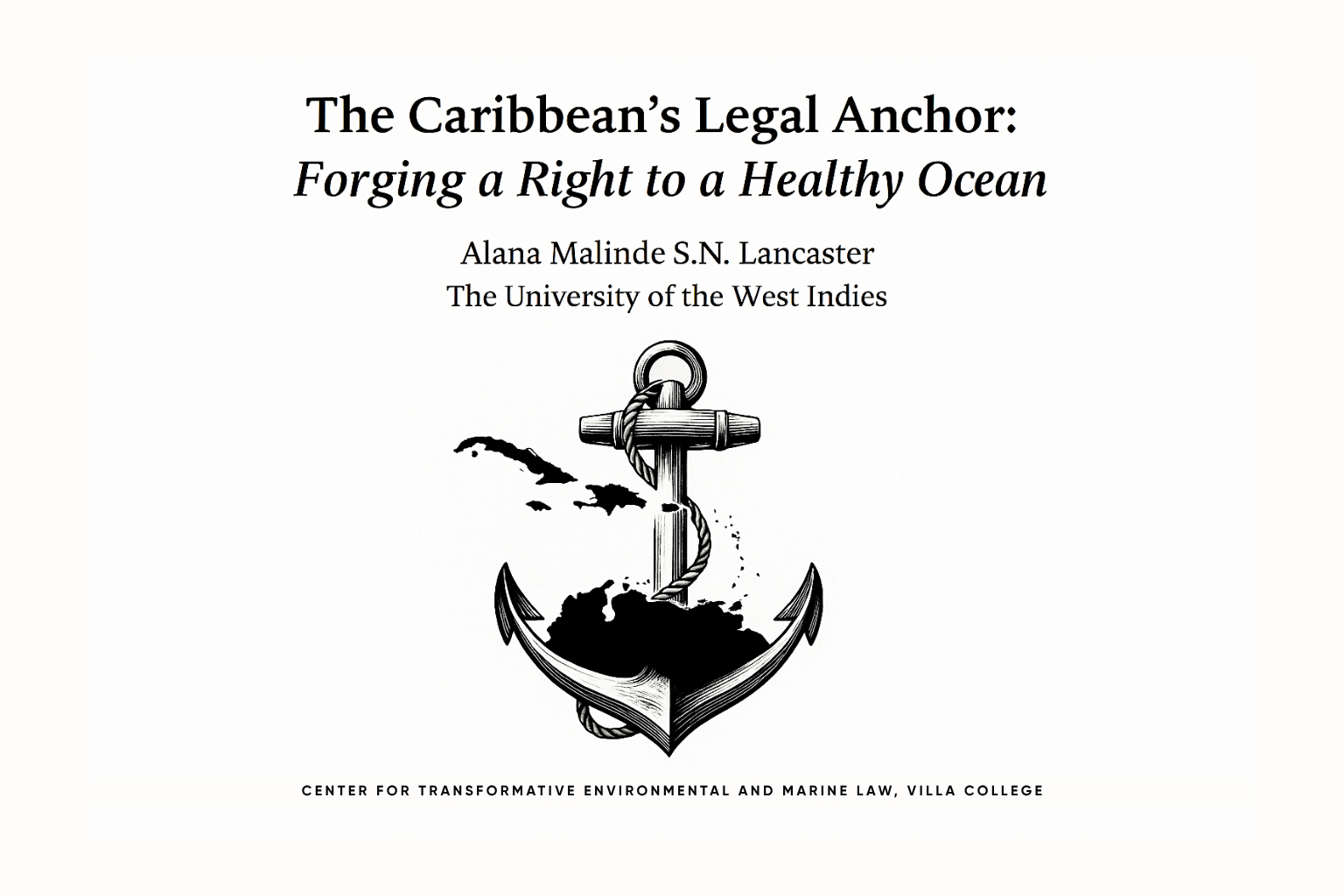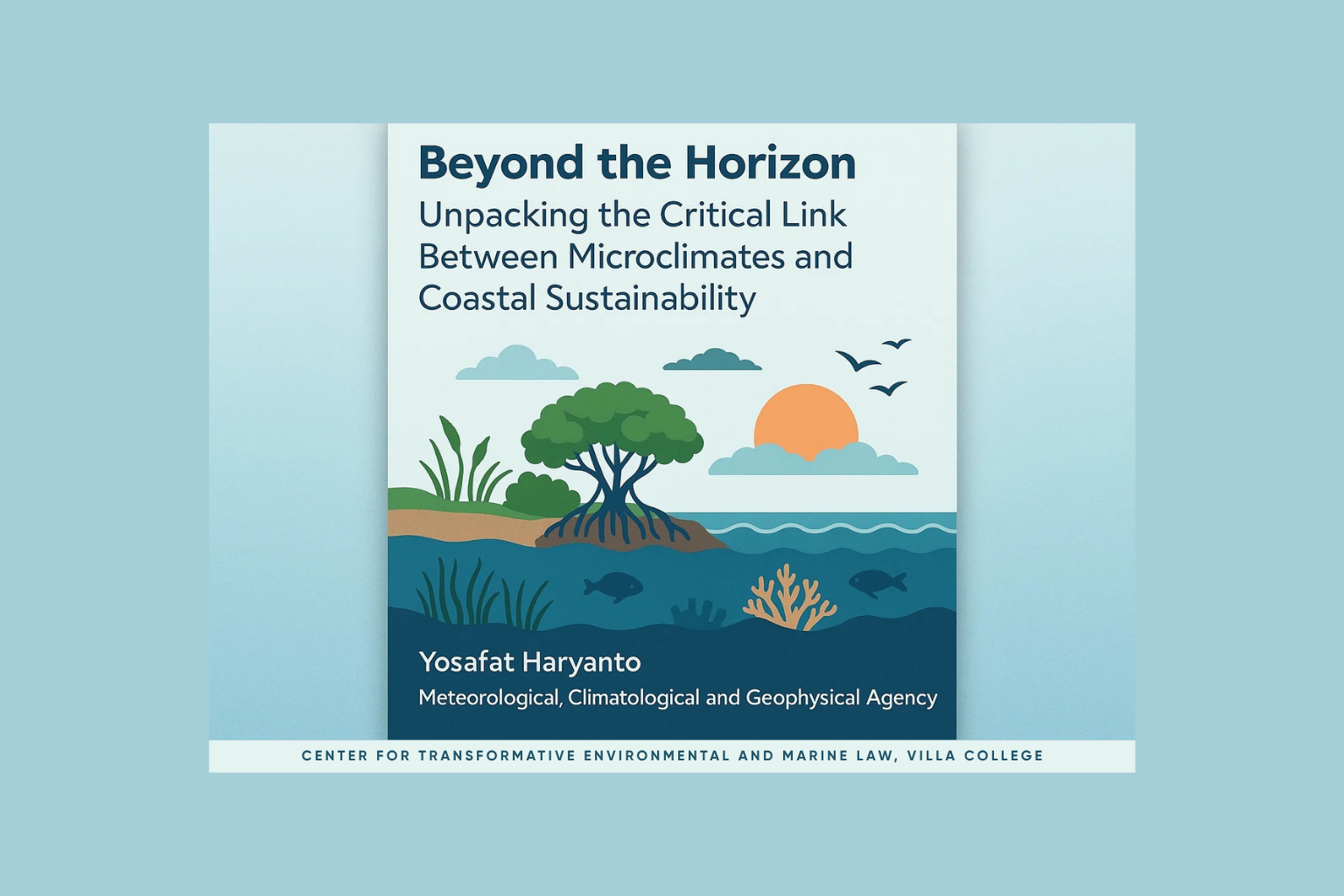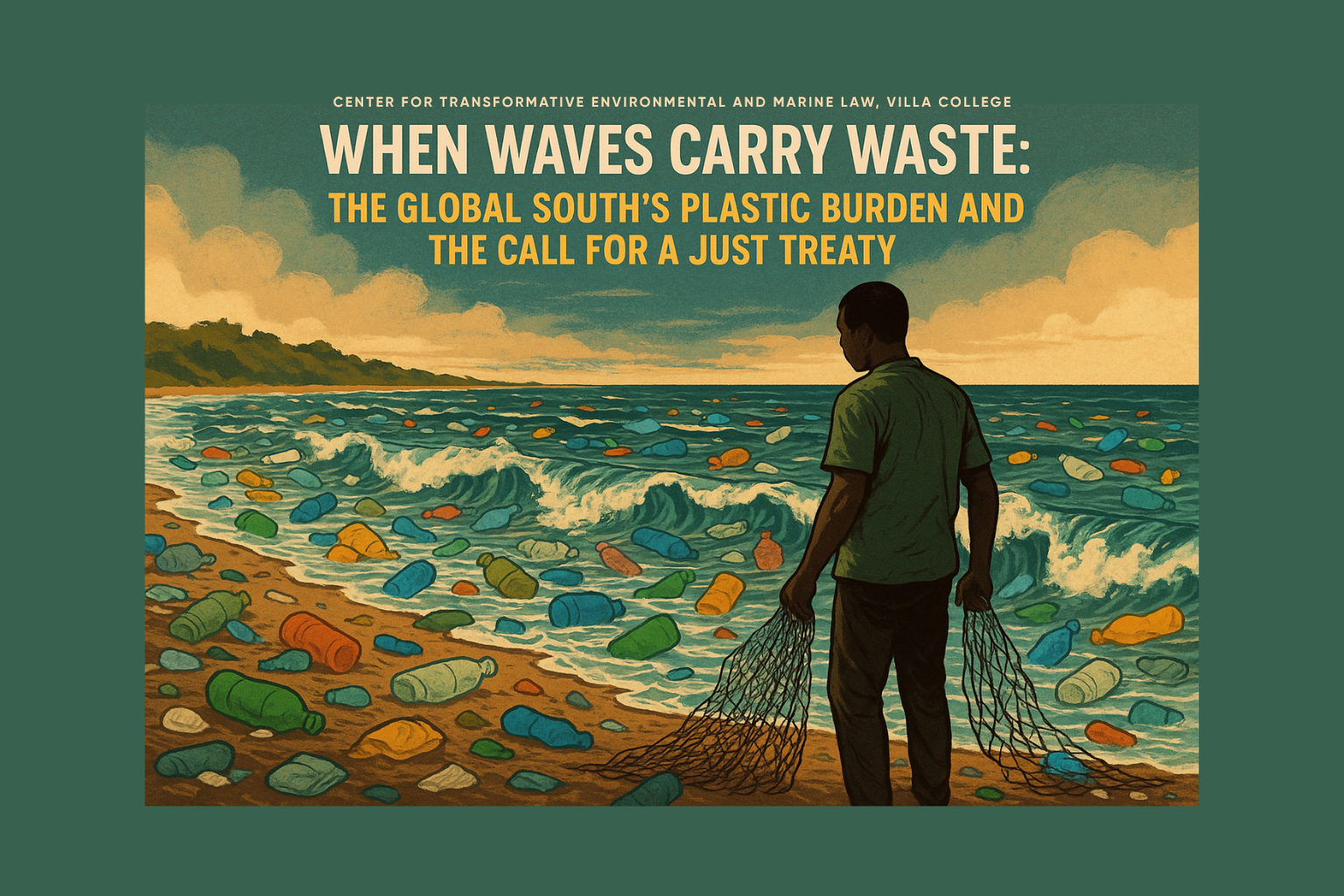World Ocean’s Day Series: From Mediterranean Bliss to Maldivian Reefs: New Research Highlights a Shared Plastic Crisis
On June 10th 2025, to mark World Oceans Day, our own Center for Transformative Environmental and Marine Law at �Թ��� launched a vital new collection of research. A standout piece from this collection, authored by Alessia Rota, Chiara Bises, and Cristina Canella, presents a compelling comparative study titled "From Mediterranean Bliss to Maldivian Reefs: Swimming in the Same Plastic Soup." The research meticulously unpacks how two vastly different, iconic marine environments are united by the pervasive and alarming threat of plastic pollution, urging us to look beyond geography to see a shared global challenge.
The paper reminds us that this is not a minor issue. Plastic pollution remains a dominant ecological threat, with over eighty percent of waste found in our seas originating from plastic. This material persists for centuries, breaking down into micro- and nanoplastics that infiltrate every level of the marine ecosystem. Marine life faces a constant hazard from threats that include ingestion, toxicological effects, bioaccumulation, and entanglement, which ultimately impacts human health and can even introduce destructive alien species to new habitats. The research frames this not just as an environmental problem, but as a state of emergency for our planet's most vital resource.
The study first turns its lens to Italy, a nation at the heart of the Mediterranean Sea. This region, while representing less than one percent of the world's ocean surface, is a hotspot of biodiversity, hosting eighteen percent of all known marine species. However, it is also one of the world's busiest marine areas, and the paper highlights how waste from commercial fishing and other activities has made Italy one of the basin's biggest contributors to mismanaged waste. This exists in paradox to the country's reputation as a European leader in recycling. The researchers point to a critical gap between policy and practice, where measures such as a national plastic tax have been introduced but repeatedly postponed, revealing a troubling lack of urgency.
On the other side of the world, the research examines the Maldives, a Small Island Developing State (SIDS) whose world-renowned coral reefs and fragile island ecosystems are equally threatened. Here, the drivers of pollution are different, stemming from the geographic isolation of islands, immense tourism pressures, and inadequate waste management infrastructure. For instance, the paper notes that resort islands generate nearly double the plastic waste per capita compared to local communities, and the national landfill at Thilafushi is a major source of leakage into the ocean. Compounding these challenges is a recent, controversial policy decision to permit the importation of waste, a move that activists fear could exacerbate environmental harm and create a form of 'waste colonialism'.
By placing these two case studies side-by-side, the research delivers its most powerful insight. Despite their starkly different socio-economic contexts—one a developed G7 nation in the EU, the other a vulnerable SIDS—both Italy and the Maldives exemplify a global pattern of insufficient political will to effectively combat marine plastic pollution. The paper demonstrates that this inaction takes different forms. For Italy, it manifests as delayed implementation and incomplete compliance with existing regulations. For the Maldives, it appears as structural limitations and questionable policy choices that undermine environmental commitments. The conclusion is clear: the problem is universal, and no nation is immune to the gap between promises and effective action.
Ultimately, the paper argues that because plastic pollution respects no borders, our solutions cannot be confined by them either. The authors join a growing chorus from the scientific community and NGOs calling for global coordination. This includes the urgent development of standardized protocols for monitoring plastic pollution and, most critically, the creation of robust, legally binding international agreements. The ongoing work of the UN's Intergovernmental Negotiating Committee to establish such a treaty on plastic pollution is presented as a crucial step forward, offering a tangible opportunity to move from awareness to enforceable global standards. This research serves as a powerful reminder of what's at stake and the concerted effort required to protect our shared oceans.
To explore the full comparative analysis and review the detailed findings on plastic pollution in both regions, access the original research paper below.
Rota, A., Bises, C., & Canella, C. (2025). From Mediterranean Bliss to Maldivian Reefs: Swimming in the Same Plastic Soup. In T. Sanni (Ed.), The Oceans-Sustaining what Sustains Us (pp. 9-22). Center for Transformative Environmental and Marine Law, Faculty of Shariah and Law, �Թ���, Maldives.



